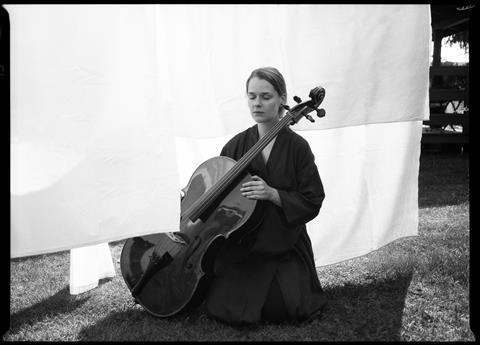Czocher explores the inspiration behind her upcoming album of compositions ‘Dreamscapes’

Discover more Featured Stories like this in The Strad Playing Hub
I always wanted to make my debut solo album a conceptual one with a leitmotif and a core story uniting the pieces. This was obviously challenging because I have been collecting music for this album over the span of two years - basically since my adventure with composing began. I had to somehow make sense of the musical language I operate in most naturally first. From there, I could start to understand what it is that creating music truly gives me; music is a way (the only way) I found at expressing the most elusive emotions and phenomena.
I decided I wanted this album to reflect this realisation. I wanted it to touch on something that is on the one hand familiar to everybody, yet still elusive. A phenomenon that we are yet to comprehend fully. What could be more common yet strange than dreaming? Another aspect that I like about the concept is the duality of the word ‘dreams’ in English. It can be about falling asleep but also about desires…
Where do we actually ‘go’ when we sleep? Maybe it’s one of those rare moments when we naturally connect with our unconscious mind and with our desires? I wanted Dreamscapes to feel like a journey, with a prologue that symbolises that moment of falling asleep/falling into another state of mind; middle pieces that reflect all the different stories we might encounter and live; and an epilogue at the end which takes us back to reality or waking life. I also wanted to capture in the album a feeling of limitless possibilities - because anything can happen when you are dreaming - by creating a sound space that felt ’out of this world’. Finally, for me the album also reflects on something that’s always fascinated me: Even though we return to real life after a dream, are we the same people as we were before we embarked on the unconscious journey?
Even though we return to real life after a dream, are we the same people as we were before we embarked on the unconscious journey?
Spirituality is a base for my artistic development. I think the more I grow as a human being, the more I have to say in my art. But I believe creativity is not only explored through writing a poem or making music, it’s accessible in so much more. It’s about living and doing trivial activities with a distinct kind of approach - a certain openness, curiosity, joy and focus. If we channel this mindset, the simplest things can be creative as well. Every day I feel I’m growing in this sense, but there’s a lot of trust and learning to let go of control that goes into achieving this creative state, both in art and simple operations too. For me, art is inextricably connected to life and these areas are intertwined.
I think every album is like a summary of who you are as an artist at the moment of creating it - what you experienced, what you found important to present, what is your musical language, the message you (consciously or unconsciously) direct to listeners etc. There is not really one person or one moment that inspired me to make this album, but I do remember the moment when I realised that my instrument can be used in totally new and interesting ways. It was when I heard Peter Gregson’s Bach Recomposed for the first time in Paolo Sorrentino’s Young Pope series. It was revolutionary for me because I’d never heard the cello like that - modern, but still classically beautiful. And my love for Sorrentino, of course, only exacerbated that feeling. It was still some time until I started composing my own music but I think some ideas started maturing within me then.
Dreamscapes is out on 27 January 2023 via Modern Recordings. Watch the trailer for Dreamscapes here:











































No comments yet